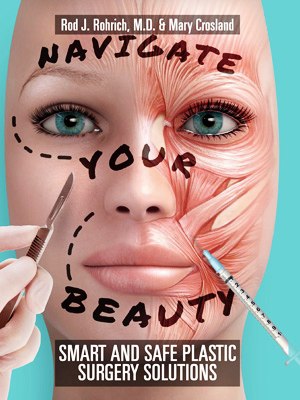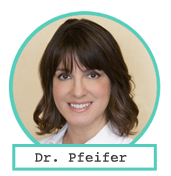
A screenshot from “Anyone can wear a white coat,” an alarming PSA about plastic surgery, courtesy of the ASPS. Click here to see the complete video.

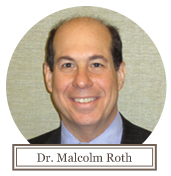
“In many ways, plastic surgery is still the Wild West in this country. Any physician can legally call him or herself a plastic surgeon. Your family doctor can decide, ‘I think I’ll do facelifts today.’ It’s vital to do your homework to get the best doctor, best procedure and best outcome.”
—Dr. Malcolm Roth, plastic surgeon and President of the American Society of Plastic Surgeons
Everyday we get questions from FOFs about plastic and cosmetic surgery. Everything from, “What is the least invasive face lift procedure?” to “Is it safe to have plastic surgery in Mexico?”
This year, we’re partnering with the American Society of Plastic Surgeons (ASPS), a not-for-profit authority on plastic surgery and plastic surgeons—and an organization we trust—to bring you the very best information on this topic.
This week, we interviewed Dr. Malcolm Roth, Chief of Plastic Surgery at Albany Medical Center, and the president of ASPS, who explains exactly how to find the right doctor, and why it can be confusing. “It’s vital for every FOF to do her homework before she chooses a doctor or a procedure,” says Dr. Roth. Our advice: If you’re considering any cosmetic procedure (including injections, lasers or even hair removal) read this first.
Why is it so confusing when it comes to choosing a qualified plastic or cosmetic surgeon?
In this country, any physician can legally call himself a plastic surgeon, even though he may not be board certified in plastic surgery. In most states, he can even advertise that he’s board certified and a cosmetic or plastic surgeon (though he may not be board certified in plastic surgery). So your gynecologist or family doctor can decide, “I think I’ll do facelifts today,” or “I think I’ll do liposuction.” As long as you have an office where you can perform the procedure, you can do what you want to do. There are some exceptions to this rule in a handful of states, but generally speaking, all you need is a facility and a medical license to perform surgery.
Wow. Why would a doctor who is not trained in plastic surgery decide to do it?
It’s difficult surviving in the world today as a physician. Insurance companies are decreasing their payments for procedures and making it more difficult to get paid. It’s easier to say, ‘Why not just do plastic surgery? My patients will pay me cash up front, and it looks easy.’ A cosmetic procedure can sound simple, but, even something like liposuction, in the wrong hands, is very dangerous. We’re hearing more and more about serious problems, and all ASPS members are seeing unhappy patients who need reconstruction, or are even beyond the point of reconstruction, due to surgery performed by unqualified physicians.
What is ASPS and how are its doctors qualified?
We are the largest plastic surgery specialty organization in the world. Our 7,000 cosmetic and reconstructive plastic surgeons are board certified by the American Board of Plastic Surgery. That means they have completed 6 years of surgical training with at least three of those years specifically devoted to plastic surgery. To qualify for ASPS, you must operate only in accredited medical facilities, adhere to a strict code of ethics and fulfill continuing medical education requirements to stay up to date, especially on patient safety. We are a non-profit, and our mission is to advance quality and, most importantly, safety, in plastic surgery.
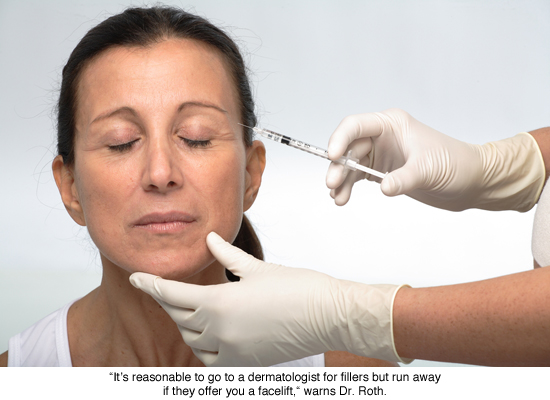

Why is this important to FOFs?
You know the old expression, if the only tool you have is a hammer, everything looks like a nail? Our surgeons have all the tools in the tool chest. If you’re a family doctor who has taken a weekend course in injectables, you’re going to recommend injectables to your patients, even if there are better options. Our members understand all the options, appropriate facial aesthetics, and most importantly, safety. They know what to do when something goes wrong.
For our society and our members, this isn’t a turf war. This is about trying to make sure patients understand that they have a choice and a responsibility to do their homework.
Okay, so how does an FOF do her “homework?” How do you choose a doctor who is skilled, safe and has the maximum amount of training?
Here are the key questions every woman should ask a plastic surgeon she is considering:
- Are you board certified by the American Board of Plastic Surgery? Are you a member of ASPS? What is your training in the field of plastic surgery? A certificate on the wall that says a doctor completed a weekend course to learn how to do lipo is not sufficient training.
- Do you have hospital privileges? That means that a hospital has granted that doctor the right to do a specific surgery in its facility. The hospital credentialing committees look at the doctor’s training, and, if they don’t feel that person meets the standard held by that institution, they won’t allow him to do surgery there. If the doctor says yes, ask, which hospitals? And check with the hospital to make sure.
- Is your surgery facility accredited by a national or state accrediting agency? Or is it state licensed? If the doctor performs surgery in his or her office, you want to make sure that facility has all the bells and whistles for the rare occasion when something does go wrong. For example, don’t you want to know that there’s a crash cart with all the medication, and all the monitoring devices that can anticipate and prevent something going awry?
- How many of these procedures have you performed?
- Am I good candidate for this procedure? What other options are there? Your doctor should be able to help you make a decision based on your budget, your comfort with doing something invasive versus noninvasive, and your anatomical needs. A qualified plastic surgeon has the training to talk to you and perform all of those things.
- What happens if I have complications? How long a recovery period can I expect and how will you help me through that? Who covers your practice if you’re not around?
- What happens if I’m not satisfied with the outcome of my surgery? Will I have to pay for it?
- Do you have before-and-after pictures that I can look through? I suggest this question with the following caution: Today, doctors can use Photoshop and other tools to make their before and after pictures look very different. And I can tell you of instances where I’ve been made aware of people putting images on their website that were not even their own. So don’t let it be your sole determining factor.
- Can I talk to another one of your patients who has experienced this procedure?
For facelifts, lipo and other surgical procedures, it makes sense to use a plastic surgeon. But what about injectables? Is it okay to go to a dermatologist for that?
Fillers and neurotoxins and other minimally invasive procedures are within the scope of dermatologist training, and it’s certainly reasonable to go to a dermatologist for those things. However, remember that dermatologists are not trained to do the surgical procedures that our members are trained to do. So if your dermatologist offers you filler, that’s probably fine. If, on the other hand, they suggest, “Well, how about I do a facelift?” that’s not in the scope of their training and a better option would be for you to consider an ASPS member surgeon.
Also, a plastic surgeon is going to know every nook and cranny of the face—where the nerves are, and what the ramifications are if you injure a nerve you’re not supposed to. An ASPS member will know how to minimize the risk of injury to vital structures. Injectables aren’t just a “skin procedure,” and it’s valuable to have somebody who has full understanding of the underlying anatomy.
What is the ultimate “red flag” that should send you running from a doctor’s office?
If they’re not trained in plastic surgery, you’ve got to be crazy. Run away. And if they are trained, but you don’t feel like you and the surgeon are connecting… that’s not a good sign. Find someone else. There’s no rush—this is your life you’re talking about.
Visit plasticsurgery.org to start your search for a qualified plastic surgeon in your area.
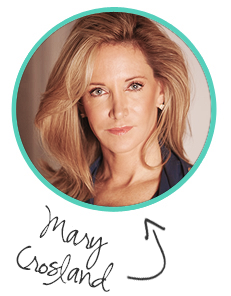
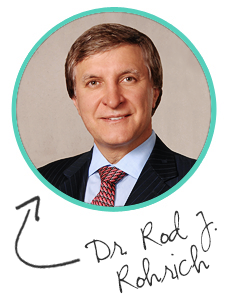 Plastic Surgery at The University of Texas Southwestern Medical Center.
Plastic Surgery at The University of Texas Southwestern Medical Center.

